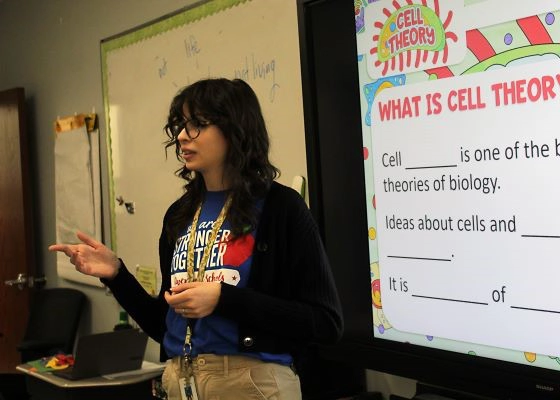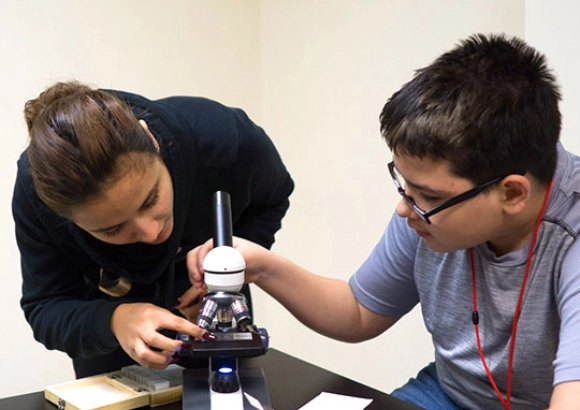Our emotional support classrooms offer personalized instruction to students with a range of mental health or behavioral health needs, spanning from mild to severe. These classrooms maintain small class sizes, with no more than 12 students per room, ensuring a heightened adult-to-student ratio. Our educational program is designed to foster the development of behavioral, social, emotional, academic, and independent living skills.

Our approach to learning is personalized, addressing the specific needs of each student. Those lacking in social-emotional skills, problem-solving, conflict resolution, and coping skills receive instruction enriched with social skills programming and aligned with Virginia's Standards of Learning. Grade-level assessments form the basis for tailored academic programs, with ongoing progress monitoring until students reach the appropriate standard. Teachers employ differentiated instruction, ensuring materials match individual academic levels. Research-based social and emotional learning curricula, along with individual and group counseling based on Individualized Education Programs (IEP), contribute to a comprehensive educational experience. School counselors lead small social skills groups for students with similar needs.
Learning Environments
Our schools enrich the learning experience through specially designed spaces, which include STEAM labs, gymnasiums, leisure rooms, libraries/computer labs, and counseling offices.
Within our STEAM labs, students engage in integrated learning spanning science, technology, engineering, art, and mathematics. The range of materials available caters to formal science experiments as well as everyday items, fostering creative problem-solving and encouraging meaningful collaboration. These labs equip students with tools and methodologies to approach challenges with innovation while cultivating resilience.
In our leisure rooms, students have the opportunity to develop various skills, including problem-solving, relationship-building, conflict resolution, and appropriate social interactions. These spaces are equipped with gaming stations, bean bags, and indoor recreational games. Access to the leisure room is determined by the level of the system of support the students have earned.

Terms You Will Hear
-
Virginia's Standards of Learning
The Virginia's Standards of Learning state standards are educational standards for the knowledge and skills students in English Language Arts and Mathematics need to achieve at each grade level. Virginia's Standards of Learning curriculum provides students with the necessary material at each grade level to achieve the educational standards.
-
Differentiated Instruction
Components of DI include teaching with diverse materials, organizing instruction to meet all learner levels and using individual and small-group instruction. Recognizing each student has individualized strengths and needs, differentiated instruction requires teachers to know their students and provide each one with experiences and tasks tailored to improve their learning.
-
Progress Monitoring
Progress Monitoring is a process in which data is collected and analyzed regularly to determine the effectiveness of academic instruction. The data is then used to change instruction to increase students' skills and move them closer to their academic goals.
-
Social-Emotional Learning (SEL)
The process through which students understand and manage their emotions, set positive goals, show empathy for others and establish and maintain positive relationships. SEL instruction is provided weekly using the evidence-based curriculum, role-play and group discussion.
-
Trauma Informed Care
Trauma informed care is the approach that shifts focusing on what the behavior of concern is, to why it is occurring. Applying this approach includes recognizing the negative impact trauma has in all areas of an individual’s life and developing responses to behaviors of concern which are focused on collaboration with the student to determine the root cause of the behavior.
-
De-escalation
When students are unable to utilize problem solving, conflict resolution, or coping skills successfully, our trained staff provide the opportunity and space for students to deescalate. During the de-escalation process, students will evaluate the root cause of their inappropriate behavioral response, strategize with staff on more appropriate responses and skills, and develop a plan for reintegration into the classroom.
-
STEAM
STEAM is an acronym for Science, Technology, Engineering, Art, and Mathematics.



